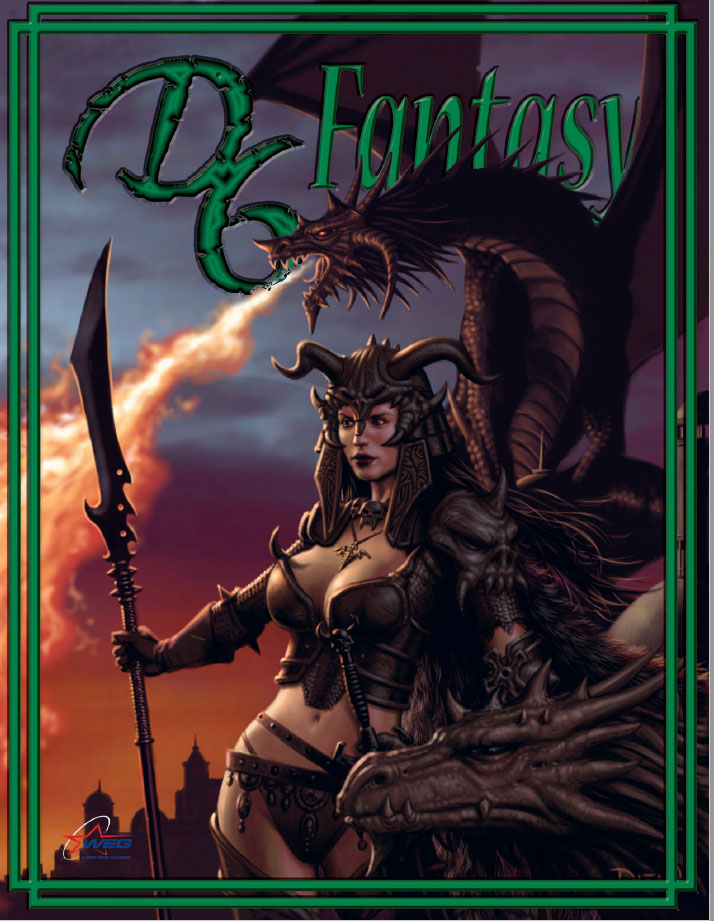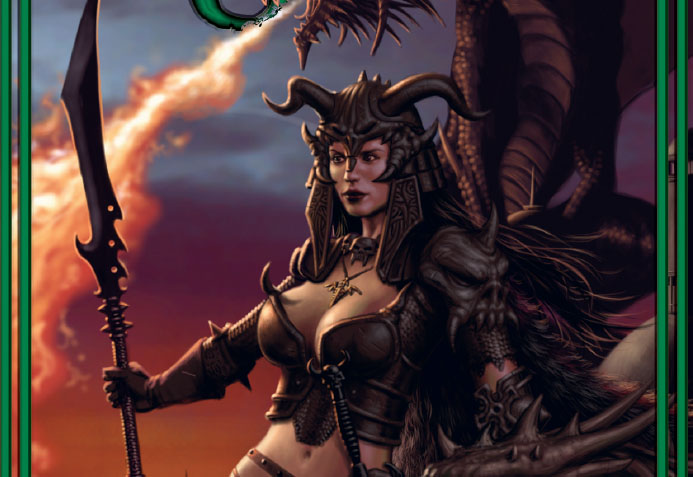I spent the weekend playing a different RPG(!)
We ran a session of d6 Fantasy from West End Games. It was interesting from the point of view of having never played the game before and ignoring the loads of pregen characters provided and diving straight in to character creation we were still up and playing in less than 30 minutes.

I was expecting a really simplistic game with none of the detail of RM but I was pleasantly surprised.
I was playing a thief, I like thieves as initial characters for a game as they can do more than just a fighter but typically you are handy with a sword as well.
So we had 7 stats to play with, six covering mental and physical attributes and one for magic. To all intents and purposes stats are point buy as you have 18 dice and you assign them to each stat. So I ended up with 4 dice each in the strength and dexterity departments, three dice in the intelligence and acumen and only 1 dice for magic.
There was an option to get more dice to spend on skills by taking disadvantages or to spend some of you skill dice on advantages, think talents and flaws and you would not be far wrong. This time I avoided this as I didn’t really want to pick a disadvantage and find out that what I thought I had and what the GM thought I had were two very different things! For a first character I wanted to keep it simple.
Having assigned those dice we then got seven more dice to assign to specific skills. The game offered about 50 skills. You can add no more than two additional dice to specific skills. I those to add one dice to seven skills.
The mechanics are really simple. Mostly you have to roll 10+ to succeed. You roll the number of dice you have in the governing stat plus any additional skill dice. So for example I had 4 dice in Coordination and 1 dice in lock picking so I would roll 4d6 for each coordination skill test except when lock picking I get to roll 5d6.
One dice in each roll is exploding when you roll a 6, so just like an open ended you keep the 6 and roll again adding to the total. Get another 6 and you add and roll again. Maybe in was my inner rolemaster but getting an open ended roll on average every 6th roll felt like bonanza time!
The adventure was an old school dungeon crawl where we fought Hobgoblins in the upper levels but they had disturbed an undead horror when they had set up their camp.
The whole thing was every enjoyable and I don’t often get to play which also made a pleasant change.
So what about combat? Well we were using the wounds system so basically I could sustain 5 levels of being wounded and the better the damage roll the more wounds you sustained. One wound stunned you, three was a severe wound, five was potentially mortal. The exploding dice thing happens with damage rolls as well as skill rolls so if you were lucky you could one punch a beasty with an open ended damage roll.
The damage was described using location and severity. I killed a hobgoblin and the GM said that I struck the hobgoblin in the chest causing a mortal wound. It was no ’66’ on a critical but it was definitely better than doing 8 hit points damage.
So what did I think?
I like my games simple and fast to play. I liked the speed with which we got down to actual play. There were more skills available in this game than I use in my RM campaign. The way that stats play an important part in the game is something I had independently arrived at for my own game.
The combat was no Rolemaster. It was actually slower to resolve than my house ruled RM. In D6 Fantasy you roll to hit, and you roll damage, the defender gets to roll a physique roll and add their armour dice to that. If you did more damage than their total of physique plus armour then you deliver a wound. The ‘units’ digit of your attack roll gives the location and the GM rolls 2d6 for a graphic damage description such as lacerations, gashes and broken bones. How much you exceed the defenders physique+armour tells you how severe the wound is. Just like Rolemaster wounds confer penalties to skill rolls.
That is much more convoluted than roll your attack, add OB deduct DB, roll your crit.
There are some nice elements. They have something called Character Points, you start with five and you can spend them after you have made a roll to add additional d6 to the roll. If you are dodging and you do a terrible dodge roll you could spend a character point to add an additional d6 to your dodge. You can keep spending them until you have no more points or you are happy with the result. If you rolled that terrible dodge and spend a character point and roll another 1 then you may want to spend a second point to add another d6 and so on.
I don’t use Fate points to let players dodge the bullet, so to speak, but the Rolemaster equivalent I suppose would be to give each character a pool of 5 +20 modifiers. If they make a bad roll then they could spend one of their 5 to boost the rolls.
These character points then form part of the experience system where they can be used as described or spent to improve skills.
The game also has Fate points. These are less dramatic than more Rolemaster implementations. They double the number of dice you get to roll for a skill roll for just that one roll. Character points you can declare after you know your final roll, Fate points must be declared before you roll the dice.
During our game session I did use character points, I assume I was going to earn some in experience, but not my Fate point.
Can Rolemaster Learn from WEG D6?
The number of template or pregen PCs featured in the core rules was a definite plus. I didn’t use one but I did look at one and learn what I should be aiming for.
The other striking thing was that WEG (West End Games) D6 was very much aimed at welcoming new role players. The text said it assumed that everyone knew what an RPG was but that was all that was assumed. This was a stark contrast to RM that likes to think of itself as an ‘advanced’ system. I suppose if you call yourself ‘advanced’ or for ‘experienced’ players then you have an excuse for excessive complexity. If players or GMs don’t like then they can go play something else. I am not sure that is a positive attitude, but it fits with much of the discussion on the boards.
I personally would love it if ICE sat down with some late teen/early 20s, inexperienced role players and hand guided them through RMU and then revised the text accordingly. I am not saying make it childish. What I would like them to do is make it accessible and welcoming to new players. That is the lesson that RM can learn from WEG.

